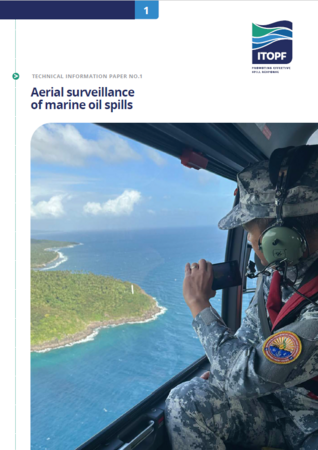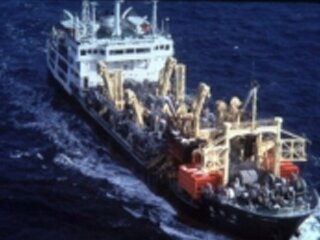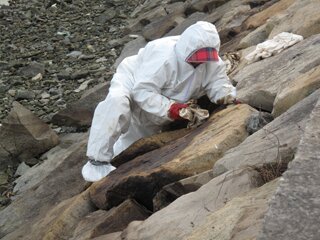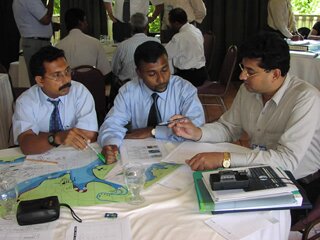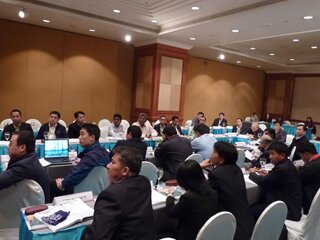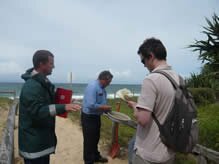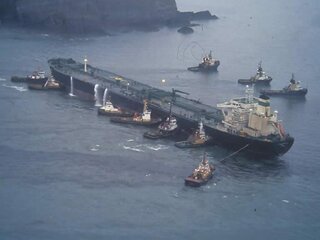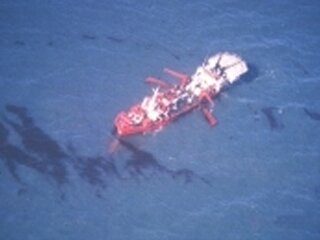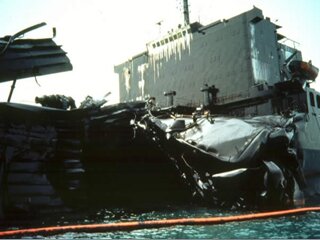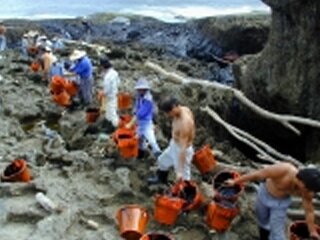Documents & Guides
Explore a variety of topics about marine spills, response and compensation matters in the pages below.
Each topic and area of interest provides access to more detailed documentation that is freely downloadable.
This includes our 18 Technical Information Papers which are fully illustrated with photos and diagrams and are available in several languages.
Alternative Fuels
What are the emerging alternative fuels and their associated risks, hazards, damages and liabilities?
Compensation for Ship-source Marine Oil Spills
What legal arrangements and sources of compensation are available for a spill from a ship?
Disposal
What planning and waste management systems need to be put in place to reduce the volume of oily waste for treatment or disposal?
HNS
What are the specific chemical response strategies for responding to a Hazardous and Noxious Substance spill, and what are the potential effects on human and marine life?
Contingency & Response Planning
What information is needed for an effective oil spill contingency plan? How can aerial observation and protective strategies assist with response operations?
Economic Effects
Which industries might suffer temporary economic losses and loss of market confidence?
Fate of Oil Spills
What happens to oil in the marine environment over time when spilled at sea? How do different factors such as volume and physical and chemical properties affect the fate of oil spills?
Explore the Resources
TIP 01: Aerial observation of marine oil spills
This paper presents advice and guidance on conducting effective aerial reconnaissance.
Categories: Fate of Oil Spills, Response Techniques, Planning & operations, Spill Response, Technical Information Paper (TIPS)
The tanker owners' perspective on oil spill response (1997)
The occurrence of major oil spills with costly and far-reaching effects has created the need for cooperation between different countries, and between government and industry. The aim of this paper is to review, from a shipping perspective, the role of industry in dealing with oil pollution incidents arising from the transportation of oil.
Categories: Spill Response, Papers
Country Profiles: A summary of oil spill response arrangements and resources worldwide (1999)
To assist shipowners comply with their requirements under the international conventions ITOPF has produced a series of Country Profiles, available to all via the Internet, allowing users to obtain a quick snapshot of national response arrangements.
Categories: Spill Response, Papers
The ITOPF perspective (2002)
This paper reviews some of the commonly experienced lessons to be learned during oil spill response. From an ITOPF perspective, good management and co-ordination is the key to a successful response.
Categories: Spill Response, Papers
Oil spill preparedness and response : Expectations & realities (2010)
Against a background of reducing oil spills from tankers, maintaining oil spill preparedness and response is a challenge.This paper highlights the evolution of expectations and realities in preparedness and response over time.
Categories: Spill Response, Contingency Planning & Advice, Papers
Information document – the role of ITOPF (2011)
This information document is offered to delegates in order to provide some background to the origin of ITOPF and its role in supporting the P&I Clubs and the IOPC Funds following incidents. It provides a description of ITOPF's funding and its objectivity in spill response and preparedness.
Categories: Spill Response, Damage Assessment, Contingency Planning & Advice, Papers
The Sea Empress oil spill in context (1998)
The grounding of the Sea Empress in February 1996 followed the wrecks of the Braer in January 1993 (84,700 tonnes of oil spilled) and the Torrey Canyon in March, 1967 (119,000 tonnes). Volume of oil lost, however, is not necessarily the most important factor in determining the seriousness of a particular incident.
Categories: Spill Response, Papers
The Sea Empress oil spill: Environmental impact and recovery (1999)
72.000 tonnes of light crude oil were released from the Sea Empress at the entrance to Milford Haven, South Wales over a 7 day period in February 1996, in an area of exceptional environmental value for wildlife, tourism and natural beauty. Natural factors coupled with effective clean-up at sea and on shore, minimised environmental impact.
Categories: Environmental effects, Spill Response, Papers
The EVOIKOS and PONTOON 300 incidents - the Technical Adviser's perspective (1998)
The oil spills from the tanker EVOIKOS off Singapore and the barge PONTOON 300 in the United Arab Emirates (UAE) were major incidents which severely tested response arrangements in the two countries.
Categories: Spill Response, Papers
Recent activities of ITOPF, the AMORGOS incident and considerations of NEBA (2002)
Learning from previous oil spill experiences is very important if predictions are to be made about the possible outcomes of following a particular response strategy in the aftermath of a new incident.
Categories: Spill Response, Papers

